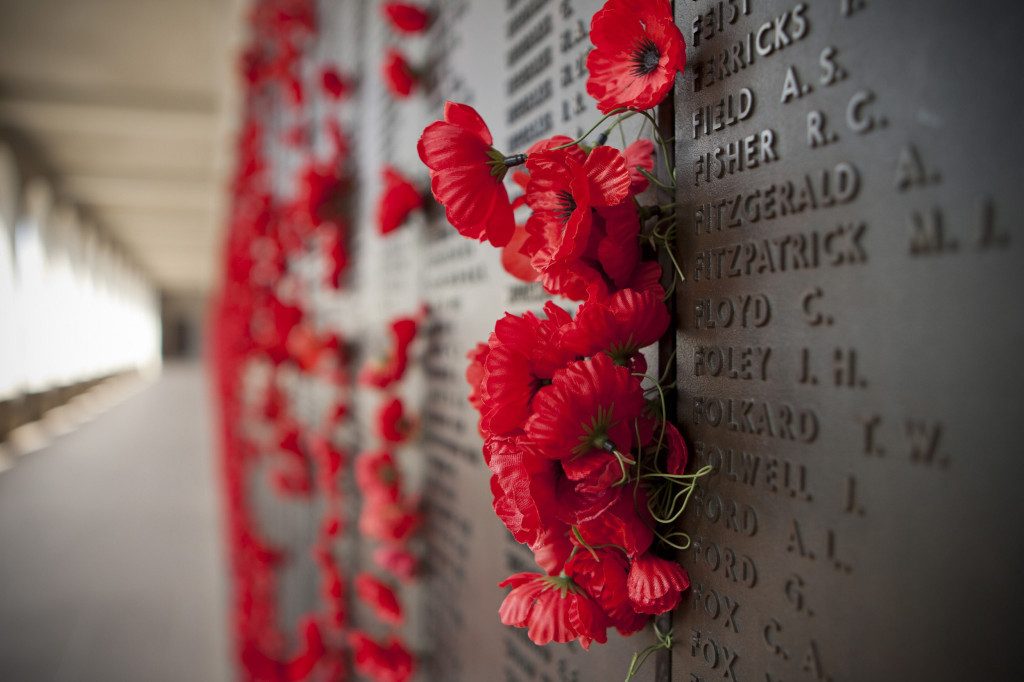
Poetry and the great catastrophe of World War I
By Michael Henslowe, Contributor
Gas! GAS! Quick, boys!—An ecstasy of fumbling,
Fitting the clumsy helmets just in time;
But someone still was yelling out and stumbling,
And flound’ring like a man in fire or lime. . .
Dim, through the misty panes and thick green light,
As under a green sea, I saw him drowning.
In all my dreams, before my helpless sight,
He plunges at me, guttering, choking, drowning.
If in some smothering dreams you too could pace
Behind the wagon that we flung him in,
And watch the white eyes writhing in his face,
His hanging face, like a devil’s sick of sin;
If you could hear, at every jolt, the blood
Come gargling from the froth-corrupted lungs,
Obscene as cancer, bitter as the cud,
Of vile incurable sores on innocent tongues,–
My friend, you would not tell with such high zest
To children ardent for some desperate glory,
The old Lie: Dulce et decorum est
Pro patria mori.
-Wilfred Owen
Studying the causes of the First World War and watching, in Churchill’s fine phrase, the “terrible Ifs accumulate,” always begets anxious expectations. That sickening feeling that latches itself onto you is never remedied with each passing year, or with the knowledge that the suffering of so many is now over. But it is on this collective suffering that every remembrance of the First World War should be principled. Indeed, when one examines what the conclusion of the war saw—more than twenty million dead—no other way seems justifiable.
So many titles have found themselves delegated to summarizing the war of 1914. For myself, I find that labelling World War I as the great catastrophe suffices. To imagine the pride that filled so many of the British troops marching into war, wishing to defend Belgium’s rape from German imperialism, elucidates that they couldn’t know what was awaiting them, and what their leaders planned on doing. And even we today, who know what followed, find our thoughts echoed by Kipling, that truly “not since her birth has our Earth seen such worth loosed upon her.”
Poetry, it must be agreed, is meant to slow down everything. It’s there to ask you to reflect. That the literature of the First World War is seen as its own contingency of required reading isn’t surprising. It is in this section that we find so much of the modern era’s gold standard: the works of Wilfred Owen, Robert Graves, and Isaac Rosenberg.
Maybe the cruelest emotion one feels when studying the First World War is that acute, but momentary, feeling of utter despair; seeing the years of bloodletting pass by and the deaths accumulating without stopping. Wilfred Owen rightly noted about wartime poetry that the “poetry is in the pity.” Every time I am subjected to this feeling, I am further haunted by his “Dulce et Decorum Est.”
The 11th day of this month has rightly come to acquire a sombre feeling. It is always around this month that I find myself stretching over to Owen or Kipling; trying to let poetry do its job of freezing the world around me, and giving me a moment’s breath to remember the great catastrophe. This first modern war, which used the world as its scenery, is rightly remembered as the tragedy that engulfed too many. It would perhaps be justifiable to allocate some time for remembrance of that universal punishment, which imprinted itself on all the world.

